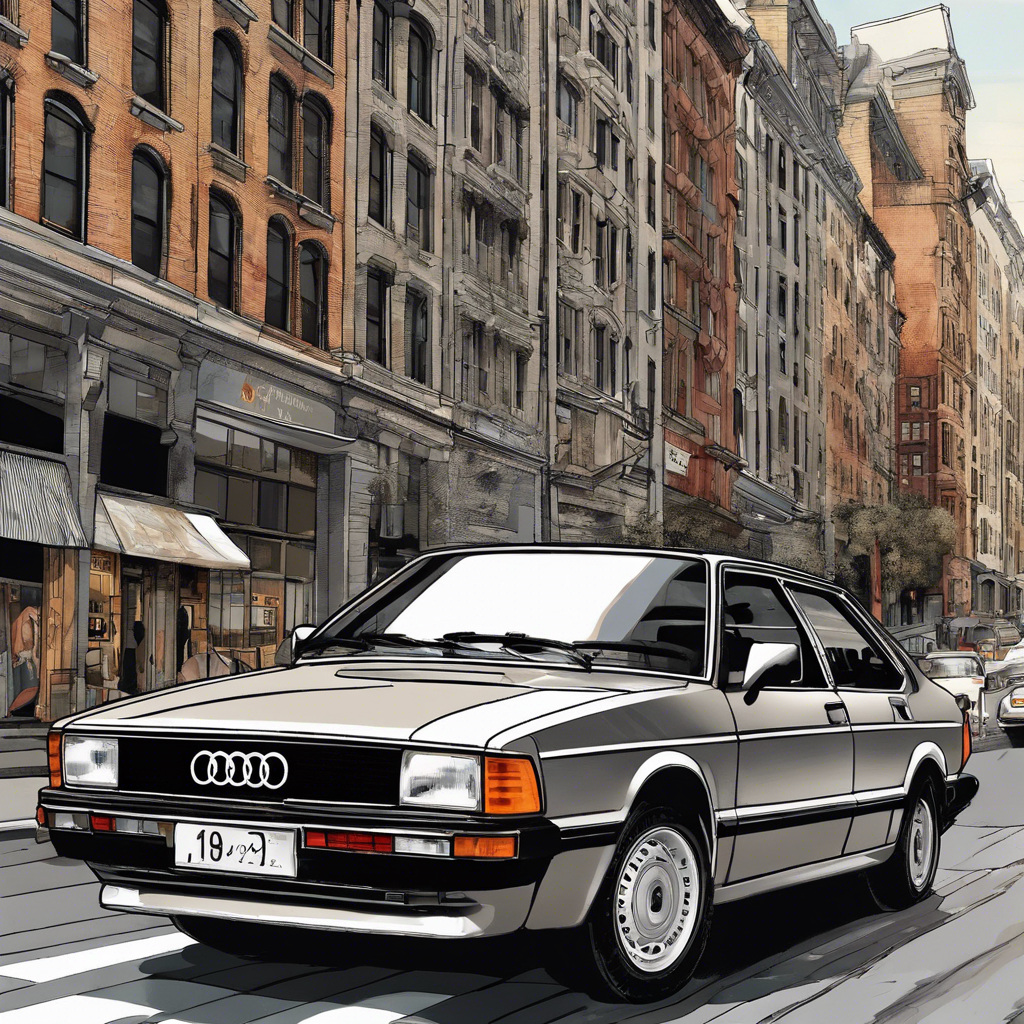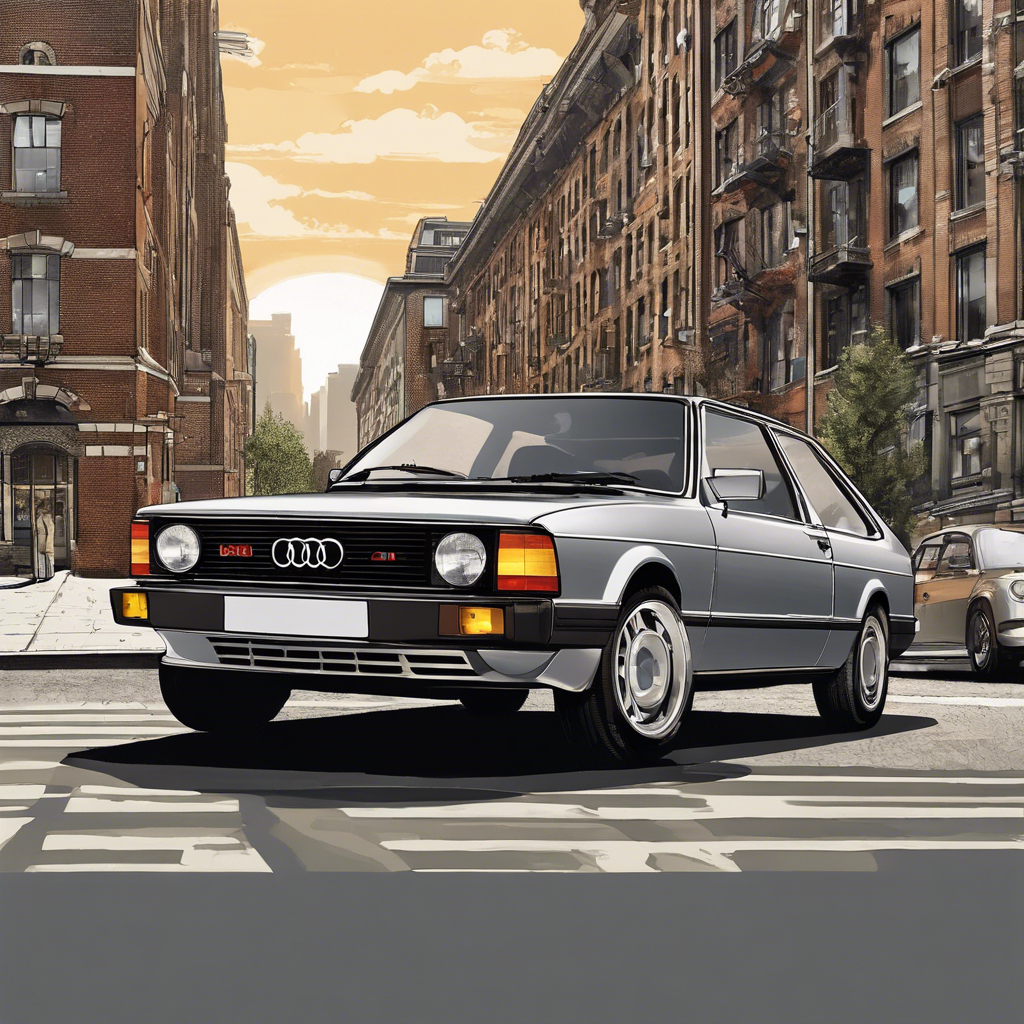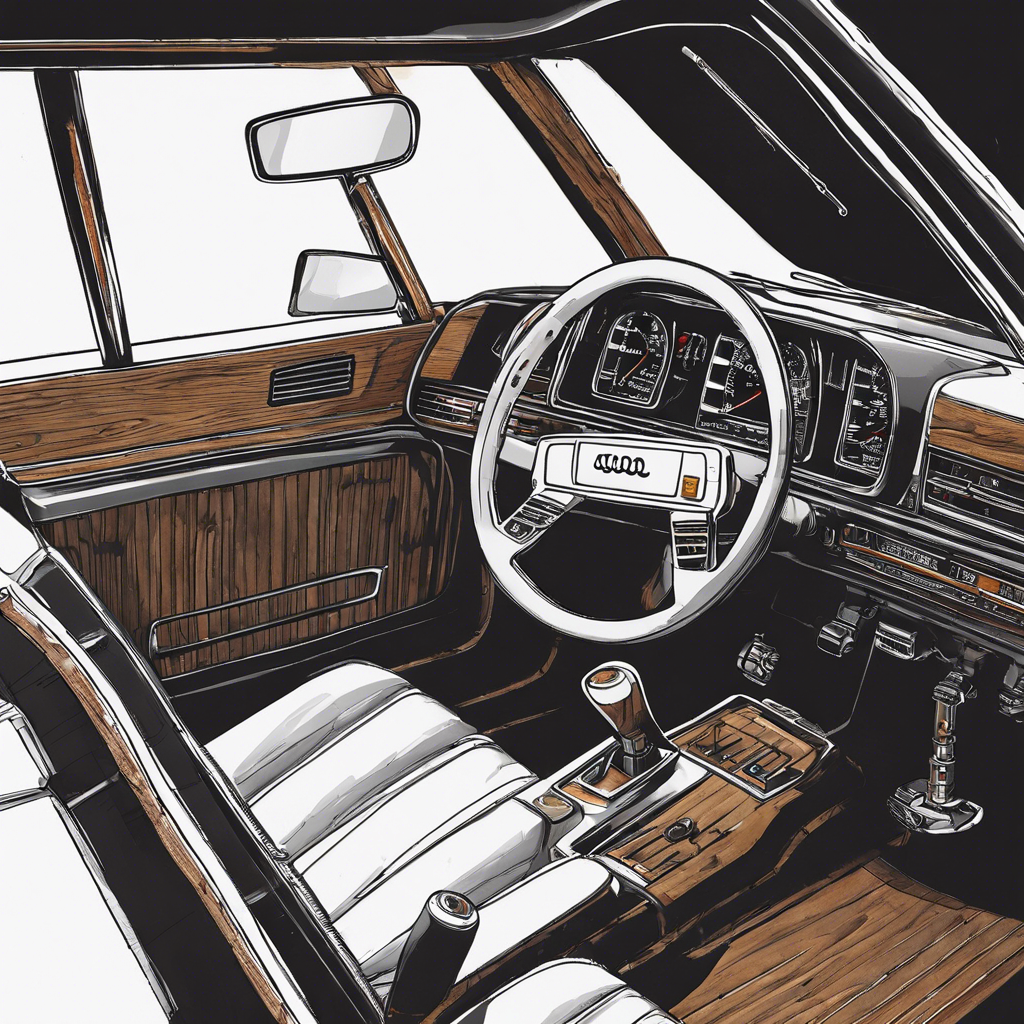A Closer Look at the Audi of the 1980s: Innovation and Style
October 8, 2024

The 1980s marked a transformative decade for the automotive industry, characterized by technological advancements, shifting consumer preferences, and an increasing emphasis on design. Amidst this evolution, Audi emerged as a prominent player, reaping the benefits of its forward-thinking engineering and commitment to quality. The Audi 1980 car models not only encapsulated the spirit of the era but also laid the groundwork for the brand’s future successes. In this blog post, we will delve into the key highlights of Audi’s offerings during this pivotal period, exploring design, technology, performance, and legacy.
The Audi Brand in the 1980s
During the 1980s, Audi was undergoing a significant transition. Having established a reputation for quality and innovation during the 1970s, the brand sought to broaden its appeal by introducing new models and embracing cutting-edge technology. This era was marked by ambitious marketing campaigns and a strategic focus on performance, safety, and luxury—a trifecta that would define Audi’s brand identity for years to come.
Flagship Models: Audi 80 and Audi 100
Among the most notable models of the decade were the Audi 80 and Audi 100. The Audi 80, originally launched in 1966, saw a significant redesign in 1978, making it one of the most successful compact executive cars of its time. The second-generation Audi 80, produced throughout the 1980s, was well-received for its clean lines, innovative technology, and robust performance.
The Audi 100, on the other hand, was positioned above the 80 and redefined the standards for mid-sized sedans in its class. Featuring a sleek, aerodynamic design, the Audi 100 not only captured the essence of 1980s automotive aesthetics but also prioritized performance, comfort, and technological advancement. With its streamlined body and distinctive low drag coefficient, the Audi 100 became a symbol of modernity and sophistication.
Technological Innovations

One of the significant developments that set Audi apart in the 1980s was its commitment to technology, particularly with the introduction of the quattro all-wheel-drive system. First introduced in 1980, the quattro system revolutionized how Audi cars handled different driving conditions, providing enhanced traction and stability. This technology not only contributed to a safer driving experience, especially in challenging weather conditions, but also positioned Audi as a leader in performance engineering.
The quattro system became synonymous with Audi’s motorsport success, most notably in rally racing. Audi’s triumphs in competitions, such as the World Rally Championship, served to bolster the brand’s image and showcased the effectiveness of their engineering prowess. This commitment to performance and innovation helped cement Audi’s reputation for producing high-quality, performance-oriented vehicles.
Design Philosophy

The design philosophy of Audi in the 1980s encompassed more than just aesthetics; it mirrored the cultural shifts of the time. With the rise of the “coupé” body style, models like the Audi 100 Coupé S and the Audi 80 Coupé turned heads and became aspirational vehicles for many. These cars combined a sporty silhouette with luxurious features, appealing to consumers who sought both performance and prestige.
Audi’s design language during this period embraced clean lines, balanced proportions, and a quest for a timeless appearance. The minimalist yet elegant interiors of Audi vehicles reflected a growing consumer preference for quality and comfort. Leather upholstery, comprehensive sound insulation, and advanced audio systems became staples in their higher-end models, contributing to an overall premium experience.
Environmental Concerns
As the decade progressed, environmental awareness began to seep into the automotive industry, prompting manufacturers to make changes to their designs and technologies. Audi was not immune to this shift, developing models with improved fuel efficiency and lower emissions. The brand pioneered the use of advanced materials and manufacturing processes that resulted in lighter, more-efficient vehicles without sacrificing performance or luxury.
This focus on sustainability and innovation laid the groundwork for future ecological initiatives that Audi would adopt in subsequent decades, positioning the brand as a responsible corporate citizen in an increasingly environmentally-conscious world.
The Legacy of 1980s Audi Vehicles
The mark that Audi left on the automotive world during the 1980s continues to resonate today. The engineering excellence of vehicles like the Audi 80 and Audi 100 laid the groundwork for modern sedans and compact cars. Moreover, the introduction of the quattro system fundamentally changed the perception of all-wheel drive in the automotive market, influencing competitors and leading to the widespread adoption of this technology in different vehicle segments.
The aesthetic choices made during this decade contributed to defining Audi’s design language, leading to iconic models like the Audi A4 and A6 in subsequent years. The attention to detail, blend of style and performance, combined with technological innovativeness, would help Audi establish a luxury segment that has performed remarkably well against competitors.
Conclusion
The Audi cars of the 1980s were more than just modes of transportation; they represented a groundbreaking chapter in the history of automotive engineering. By focusing on technology, performance, and style, Audi transformed itself into a brand synonymous with quality and luxury. As we reflect on this transformative decade, it becomes evident that the decisions made during this period helped Audi carve out a unique identity, setting it apart from other manufacturers and ensuring its place at the forefront of the automotive industry.
The success of Audi during the 1980s was no mere coincidence; it was the product of a thorough understanding of consumer needs, a commitment to innovation, and a vision that extended beyond the immediate marketplace. Today, as we drive modern Audi vehicles equipped with advanced technology and sophisticated design, we can clearly see the influence and legacy of the Audi cars of the 1980s—a tribute to a bygone era that continues to inspire future generations of automotive enthusiasts.